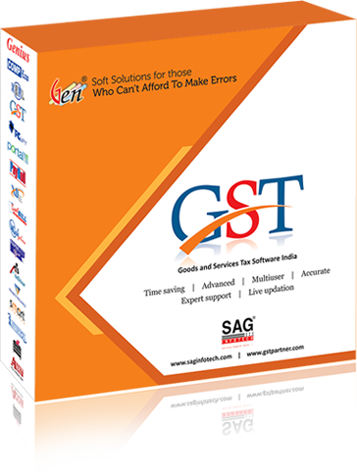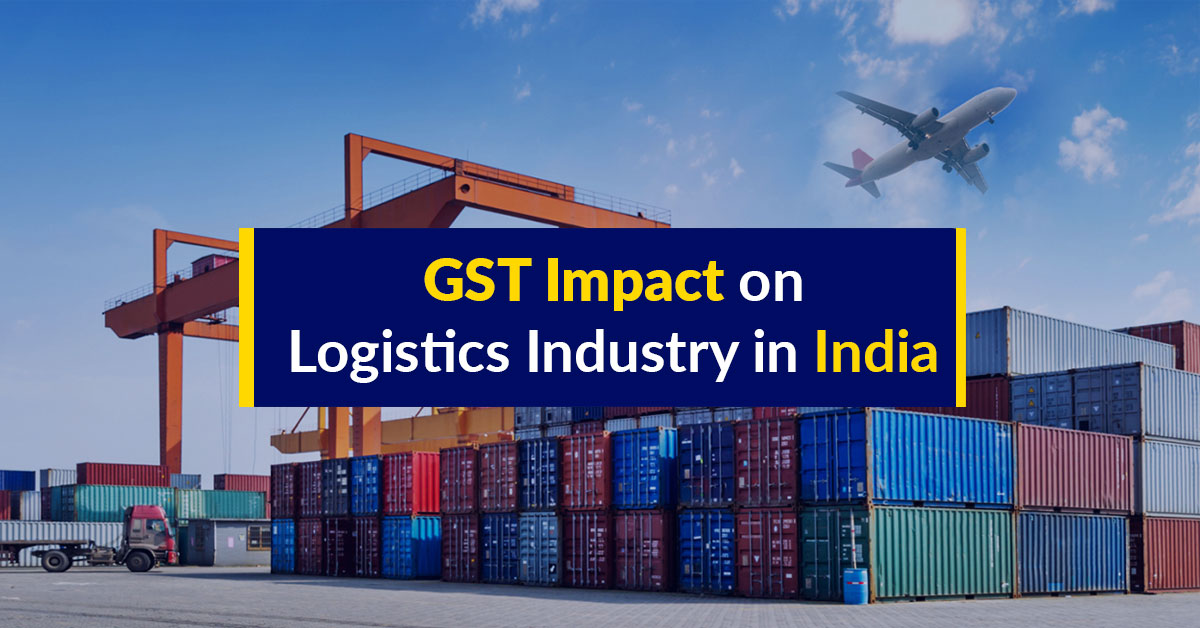What is the GST impact on logistics industry? How will the GST rate affect logistics services? Logistic Industry consists the interplay of various manufacturing and trading activities in India on day to day basis. It is growing towards the top to meet the increasing demand and supply gap. Considering the current scenario, logistic is the backbone of rapidly growing Indian economy.
The compatibility of technology, infrastructure, and several services, which run the playing field of the logistics industry, supports timely delivery of goods and services in a safe environment to the consumer through a tangible supply chain. GST is implemented with the big objective to improve Indian economy, reduce the parallel economy and corruption. Hence, GST plays a very important role in logistics.
According to a JLL study, it is expected that the Indian industry will outclass $200 billion by 2020. GST is the biggest tax reform and it is directed to simplify the structure of indirect tax collection structure. Logistic is also an important part to be considered under GST head as it is involved in the easy transportation of various goods and services.
Contents
Problems with Logistic Industry in India
The Logistic segment in India is divided into two subparts, which includes warehousing & cold-storage and freight & passenger transportation. It is a blend of outbound and inbound services which are generated from manufacturing and supply chain side. Being a wide supplying field till date, it is collapsed to deliver as per its potential and the reason is infrastructural inefficient administration.
Unequally spreaded infrastructure leads to further decaying the key resources and burdening other elements as well. As per the graph from India Brand Equity Foundation (IBEF), road and rail transport bears almost 92% of logistics industry’s burden whereas air and water transport remain under-performing.
Download the Gaining Momentum of Indian Logistics Industry by IBEF
Apart from this problem, there are so many reasons like unregulated pricing policies, lack of trained personnel and adequate software/tools, flaky assessment of transportation costs, stock damage and bad debts, and lack of research and development conduct in this segment.
How does GST Fill the Gap?
As it is too early to predict the GST benefits on logistics sector as it has so many aforementioned loopholes, but this shift from conventional approach in India’s taxation policy has surely some unquestionable profits to generate. Here is the listing which shows the GST impact on various parts of the logistics industry.
Clearance Process Became Easy:
After GST implementation, the time-taking clearance process and complicated structure of paperwork are simplified at various inter-state points. As per the World Bank Report, this automatic structure has reduced the travel time and cost of logistics by 30-40%.
The increased speed and reduction of spendings on goods transportation have created a great boost in the GDP around 100-200 bps and created various commercial opportunities.
After GST implementation, various check posts at above 20 state borders have already been pulled apart, therefore making more room for trucks to cover more ground. Furthermore, the e-way bill is compulsorily making online registration of goods which cost more than Rs. 50,000 before crossing the borders. So, we can apparently see that the GST implementation has reduced infrastructure, compliance, and time issues from the transportation way.
Forward Integration can be Part:
Removing entry tax and making easy tax compliance system have added extra 5-7 hours to the transit time in the interstate transport of goods. As the logistic companies are in advantage after GST rollout, it will make them offer services at a lower price. Consequently, companies will outsource their logistic work to third party and fourth party logistics companies and this will create a forward integration and systematic mechanism of the logistics industry.
GST Implies a Single Tax Rate:
A single tax rate under GST regime will make corporations to pull away from the exercise of storing in a warehouse in many states to stick with the separate tax code of each state. Now, the big consumer companies can make a large warehouse at critical points in India and arrange other logistic companies to maintain distribution and supply chains of the goods.
Eliminating Corruption in Logistic Activities:
As GST removes the sidelines of the parallel economy, it obviously eliminates monopoly of local booking agents and across-the-border corruption by permitting wider scope for fair transportation which equally beneficial for consumers, states, businesses, and the Centre.
Petrol Exemption Reduces Input Credit Benefits
As GST council is thinking over to include the petroleum under the ambit of GST but till it is implemented, the companies are bearing the cost of petrol expenses. Petrol plays a very important role in logistics and when the petrol will come under the GST ambit, the businesses will get input tax credit benefits on petroleum used in the transportation of logistic services.
GST impact on the logistic industry is quite significant because it is aimed to reduce the overall cost and improve the systematic flow of logistic services. Although, it is too early to predict anything in advance as full-course of GST provisions are not announced yet and GST amendments are on the way to reach perfection.
Overall, considering the current situations and latest go-arounds about the logistics industry, we can see the positive part of GST implementation on logistic industry as of now.






